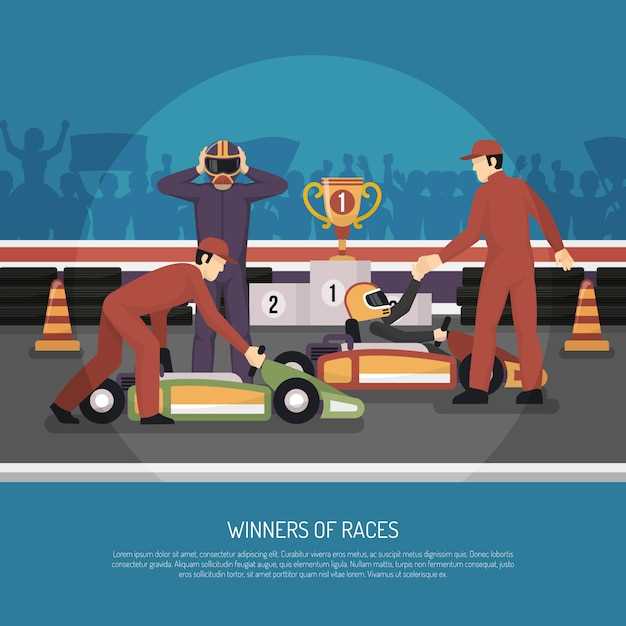How Pit Crews Contribute to VW Racing Wins

The world of motorsport is a high-stakes arena where every second counts, and the support of a dedicated pit crew can make all the difference in securing victory. In the realm of VW racing championships, these specialized teams play a crucial role, providing the essential services that can propel a driver to the top of the leaderboard. The intricate dynamics of a pit stop are a testament to the meticulous preparation and teamwork that characterize successful racing crews.
A pit crew is not just a group of technicians; it is a well-oiled machine, composed of skilled individuals who each have their designated roles. From tire changes to refueling and adjustments to the car’s performance, the crew operates with unparalleled precision and speed. This level of expertise is what empowers VW racing teams to capitalize on every opportunity, ensuring that their vehicles are always race-ready when the moments count the most.
Understanding the synergetic relationship between the drivers and their pit crews reveals the strategic importance of these teams in the context of VW racing championships. The collaborative efforts during a pit stop not only enhance performance but also serve as a critical support system that can influence the outcome of a race. In this article, we will delve deeper into the methods and strategies employed by pit crews, illustrating how their dedication and skill contribute significantly to the success of VW racing teams.
Strategies for Rapid Tire Changes During Races
The efficiency of a pit crew in executing rapid tire changes can significantly influence the outcome of a race. To achieve this, crews employ a series of strategies that streamline the process and minimize the time spent in the pit. First and foremost, precise communication among team members is crucial. Crew members must clearly understand their specific roles, whether they are responsible for removing old tires, installing new ones, or managing the equipment.
Utilizing specialized equipment is another essential strategy. Crews often use high-performance tire guns designed for quick removal and installation. By ensuring that these tools are well-maintained and calibrated, the crew can achieve optimal performance during pit stops. Furthermore, having a dedicated team for wheel and tire handling allows for a coordinated effort, ensuring that new tires are ready to go as soon as the old ones are off.
Practice and simulation are vital. Regular training sessions help crews practice under pressure, allowing them to refine their techniques and timing. This typically includes mock pit stops during training sessions where each crew member is timed, fostering a competitive spirit to improve their speed and efficiency. The element of strategy also comes into play as crews analyze previous races to identify areas for improvement, adapting their techniques accordingly.
Finally, adaptability during the race is key. Conditions can change rapidly, and crews need to be prepared for unexpected situations, such as needing to change to different tire compounds due to weather or track conditions. This ability to quickly reassess and execute alternate strategies showcases the importance of teamwork and support within the pit crew. Every second counts in racing, and the effectiveness of tire changes can be a decisive factor in clinching the championship.
Training Techniques for Optimal Team Coordination

Effective training techniques are crucial for ensuring that pit crews operate at peak efficiency during VW Racing Championships. One of the key aspects of training involves simulating race conditions to foster quick decision-making and seamless communication among crew members.
Drills and Simulations: Regular drills mimic the high-pressure environment of actual races. These drills focus on specific tasks, such as tire changes and refueling, allowing each crew member to practice their role repeatedly. By integrating timed simulations, the team can identify potential bottlenecks and areas for improvement, enhancing overall support during real races.
Comprehensive Role Training: Each member of the crew must be proficient in their designated tasks while also being aware of the larger team dynamics. Cross-training employees in multiple roles promotes flexibility and ensures that crew members can step in for one another if needed. This multifaceted approach strengthens the entire pit support structure.
Communication Protocols: Establishing clear communication protocols is essential for team coordination. Utilizing hand signals, specific callouts, and visual indicators helps reduce miscommunication during the chaotic moments of a pit stop. Regular training sessions that reinforce these protocols help build confidence and ensure everyone knows how to convey important information swiftly.
Team-Based Exercises: Incorporating team-building exercises into the training regimen fosters trust and camaraderie among crew members. Activities that require cooperation and strategic planning boost team morale and lead to more effective collaboration during races. A cohesive team can address challenges more adeptly and enhance overall performance.
By implementing these training techniques, VW racing pit crews can optimize their coordination, leading to quicker pit stops and ultimately contributing to securing championships. Teamwork, practice, and clear communication are the cornerstones of successful pit operations.
Tools and Technology Used by VW Pit Crews

VW pit crews utilize a variety of specialized tools and cutting-edge technology to enhance their support during racing events. Precision and speed are paramount, and the right equipment is essential for achieving both. One of the most critical tools in a pit crew’s arsenal is the pneumatic impact wrench, which allows for rapid tire changes. This tool is designed to maximize efficiency, enabling crew members to swiftly remove and install tires within seconds.
In addition to impact wrenches, pit crews rely on high-quality jacks and stands to lift vehicles safely and effectively during pit stops. These devices must be robust and reliable, as any malfunction can lead to significant delays and impact race outcomes. Moreover, electronic torque wrenches are employed to ensure that tire bolts are tightened to the exact specifications, minimizing the risk of accidents caused by loose wheels.
Data analytics tools have also become a fundamental part of the racing strategy. Crews use real-time telemetry systems to monitor vehicle performance and make informed decisions during the race. This technology provides insights into tire wear, fuel consumption, and engine performance, helping teams adjust their strategies on the fly.
Communication tools are vital for coordination among crew members. Headsets and radio systems ensure that everyone is aware of their tasks and the overall race situation. This seamless communication allows for precise execution of pit stops, which can make a significant difference in a driver’s position on the track.
In summary, VW pit crews integrate advanced tools and technology to provide the necessary support needed for racing success. The combination of mechanical expertise and innovative technology allows them to execute flawless pit stops, ultimately contributing to their championship-winning performances.



